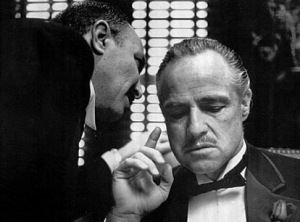Last weekend I attended the first StartSLC conference in Salt Lake City, Utah. It brought together thousands of entrepreneurs and investors for a weekend of speakers, panels, and other activities. It’s exciting to see the development of a strong startup ecosystem in Utah! As I participated, I thought about the roles that come together to make a startup successful. There must be a founder or small group of founders. As the company gets going, the founders need consigliere (supporting staff - I had to look the word up when I first saw it). Often startups seek investors to provide growth capital.
As I met with and listened to people in these roles, I thought about what role I fit best and what it takes to be successful in each role.
Are you a founder?
Being a founder is tough, and it’s not for everyone. The role is epitomized by visible superstars like Steve Jobs, Jeff Bezos, and Mark Zuckerberg.
Founder attributes should include the following:
Confidence. Often founders leave a seemingly secure situation, such as a regular job, to pursue an idea. They must have supreme confidence in their idea and in themselves to make this leap against high odds of failure.
Focus. It can take years to build a startup into what you might consider an established, stable company. Although circumstances may call for changes in direction, the founder needs to have narrow focus for a long period of time.
Fortitude. As a startup grows, much weight is placed on the founders’ shoulders. They feel responsible for the customers, employees, vendors, and investors that have placed their faith in them. Founders must be willing to push ahead through the ups and downs without giving up.
Leadership. Founders must get people to follow them. Most importantly, customers must follow or there will be no business. Founders need team members to follow them as the company grows. They may need to convince investors to put money behind them.
Are you a consigliere?
I first saw this word in the book, The Startup of You, by LinkedIn founder Reid Hoffman. I like how it describes the supporting role. It is Italian for “counselor” and was popularized by use in the mafia, including the The Godfather book and movie. It refers to a low-key, right-hand to the front man.
Hoffman writes, "Most super talented people want to be the front man; few play the consigliere role well. In other words, there's less competition and significant opportunity to be an all-star right-hand man."
This term usually applies to THE right-hand man or woman, such as Sheryl Sandberg at Facebook. But it can also apply to any team members who support the founders.
Consigliere attributes should include the following:
Humility. They are critical to the company’s success. Hopefully the founder, as a good leader, will recognize their value, but they probably won’t get much public glory.
Loyalty. They don't need to commit to the founder for life, and they don't even need to be full-time employees. But they do need to be 100% loyal to the role they agreed to. If their circumstances change or they lose interest in the role, they should move aside so they don’t hold the rest of the team back.
Are you an investor?
You don’t need personal wealth to be an investor. Yes, investing takes money, but often investors are entrusted with someone else’s money to invest on their behalf.
This is common in the venture capital industry. VC’s form a partnership and invite limited partners (LP's), such as institutional investors and high net worth individuals, to invest their funds into the partnership. The VC's invest those funds with the expectation of providing a good return for the LP’s.
Whether investing their own money or on behalf of others, investor attributes should include the following:
Experience. Education is important, but it takes experience to recognize the makings of a good investment. They must also be capable of helping the company through the ups and downs of growth.
Quick learner. Every potential investment requires a learning curve. It may be in a new industry, and certainly every company is different. Investors need to be able to quickly size up the company and its position in the industry to make a good investment decision.
Hands off. Investors must be comfortable with helping to guide a business without being involved in day-to-day decisions and operations. This is difficult for some people.
Big picture view. Founders need to be laser focused on the specific industry segment they are competing in. In contrast, investors must stay current with trends across the economy as a whole. Even if their investments are focused in one area, they need to know how other trends may affect that area.
We Evolve Over Time
As we think about the startup role that suits us the best, we should also recognize that we evolve throughout our careers. Often people start in the consigliere role to gain experience, move to a founder role when the opportunity arises, and then move on to investing.
The opportunities and variety are what make the startup world so exciting!
Question: What roles suits you the best, and why?

